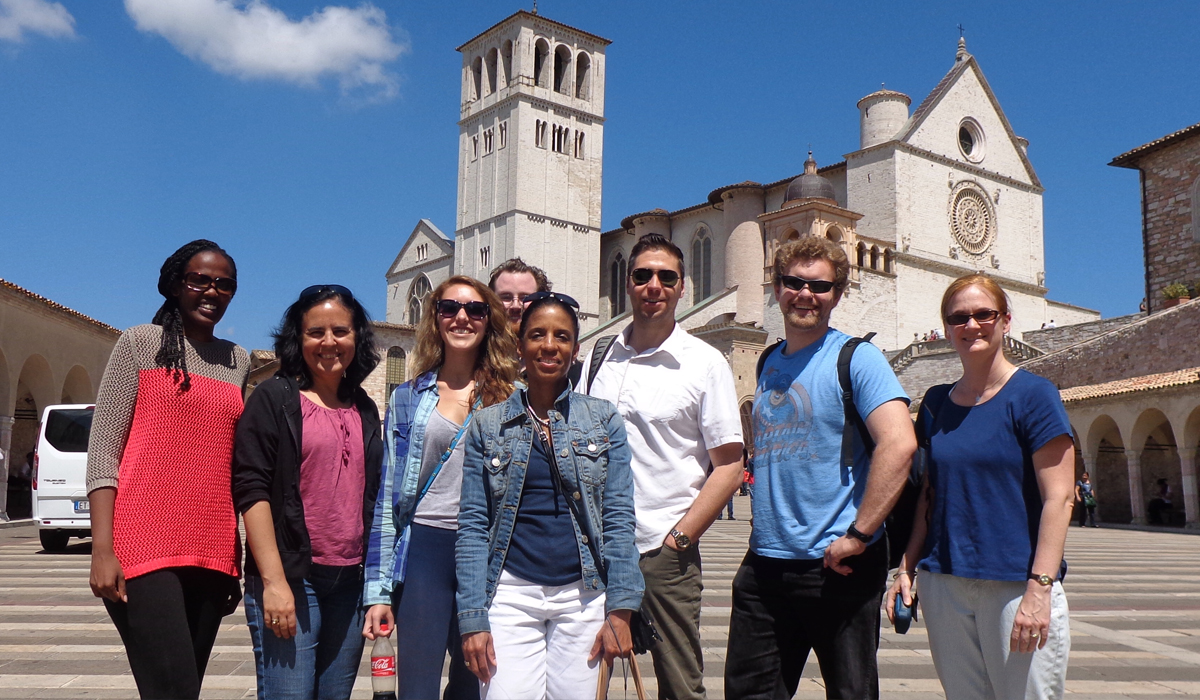Thank you for your interest in Catholic University’s International Human Rights Summer Law Program in Rome, Italy! The Program is offered in even years and will take place again from May 17th through June 5th.
Students participating in the International Human Rights Summer Law Program earn four credits over a concentrated three-week program of study. Students select two two-credit courses from a menu of courses that focuses on different aspects of human rights law. Peruse the course offerings from Summer 2026. Students may anticipate new courses will be developed for Summer 2026. Check the website often for updates.
Art, Cultural Property and Human Rights (2 cr.) – This course is a survey course that explores art and cultural heritage from the perspective of human rights. We will examine the extent of human rights protection in international treaties and national laws (focusing in particular on American, European, and Italian law) for cultural heritage, artistic productions, and participation in cultural life. We will learn about the complex and multilayered regime of public and private regulation of art and cultural heritage, as well as the tensions between interests of the many public and private stakeholders, including nation-states, museums, art dealers, artists, and the general public. Some of the issues that we will study include artist’s rights in visual art, including copyright, moral rights, and droit de suite; international movement of art and antiquities and the illicit international trade in art; ownership of native cultural objects, including indigenous rights and group rights in cultural resources; repatriation of cultural objects; plundering and destruction of works of art in times of war and military conflict; and government censorship of art and support of art. Students will not only discuss theoretical issues, but will also have many opportunities to explore the cultural heritage faculty age of the “Eternal City” and Vatican City. Professor Susanna Frederick Fischer.
Human Rights & The Law of Democracy (2 cr.) – In this seminar, students will study the relationship between human rights, democracy, and modern American election law. Largely discussion based, the course will explore the balance of—and potential tension between—individuals’ rights and the majoritarian commitments of democracy, from both a theoretical and doctrinal standpoint. First, the students will engage with democratic theory as articulated by thinkers across history, from Plato, to the American Founders, to contemporary scholars like John Hart Ely. Building on that foundation, the course will then cover modern election law doctrine and its intersection with human rights, including topics related to the right to vote, the freedoms of speech and association, and equality. Professor Natalie Schmidt.
Immigration and Human Rights Seminar (2 cr.) - This seminar will examine the ways in which international human rights law and U.S. law offer protection to immigrants whose civil, political, economic, or social rights have been violated in their home countries. We will focus on issues such as U.S. asylum and withholding of removal, international and regional human rights treaties concerning torture, discrimination, children, and the right to migrate, as well as protections for unaccompanied minors and other vulnerable populations. We will explore the impact, from a human rights perspective, of recent policies altering U.S. legal protections for refugees and we will look comparatively at how E.U. countries are addressing these issues. Students will read case studies and participate in practice-oriented exercises to develop a real world understanding of the way in which lawyers pursue domestic and international remedies to protect the human rights of migrants. Professor Stacy Brustin and Professor Ashley Feasley.

